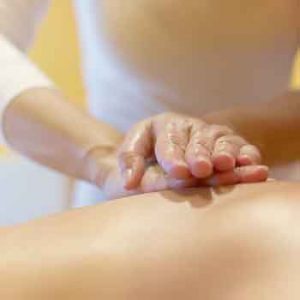
More evidence that low-calorie sweeteners are bad for your health
Studies show that artificial sweeteners can raise the risk of hypertension, metabolic syndrome, type 2 diabetes and heart disease, including stroke.

Natural Health News — Many people consider massage a luxury, but new evidence adds weight to its potential as a therapy as well.
In the first ever study of massage as a stand-alone treatment for anxiety, researchers uncovered significant benefits.
The research, published in the Journal of Clinical Psychiatry, compared twice-weekly Swedish massage to light touch over a six-week period for people with generalised anxiety disorder GAD. Therapy sessions lasted 45 minutes and improvements in anxiety were assessed by both the patients and their practitioners.
Swedish massage therapy – a traditional form of deep-tissue massage – appeared to be the most effective in reducing anxiety, the researchers found.
In contrast, light touch therapy – the practice of gently placing hands on different parts of someone’s body to ‘release energy’ – didn’t show as significant an effect on the participants’ anxiety levels.
Rapid results
Researchers found as early as session five that those who received Swedish massage showed greater improvement of anxiety symptoms than those who received light touch. There was also a decrease in depression symptoms among those who received massage.
People with GAD experience constant anxiety, with fearful and worrisome thoughts clouding their mind at all hours of the day – often for weeks or months on end.
These thoughts are often difficult to escape and can leave GAD sufferers feeling drained, fatigued, or with long-term stomach pain or muscle tension.
» Massage is known to have many therapeutic benefits including boosting immunity and improving sleep quality.
» This first ever study into massage for the treatment of generalised anxiety disorder (GAD) has shown that in a relatively short period of time Swedish massage – a traditional form of deep tissue massage – can help to significantly reduce feelings of anxiety and depression compared to a light touch massage.
GAD is typically treated with antidepressants or anti-anxiety medications, as well as psychotherapy and cognitive behavioural therapy. This latest evidence suggests that there may be another way to treat this condition.
“These findings are significant and if replicated in a larger study will have important ramifications for patients and providers,” said Dr. Mark Hyman Rapaport, chair of Emory University’s Department of Psychiatry and Behavioral Sciences.
Therapeutic benefits
Past research has come to similar conclusions about massage benefits. In one 2010 study massage was found to boost the immune system, and other evidence suggests that it can also improve sleep quality. Both sleep and immune function also play a role in mental health.
In addition, touch and intimacy are also important in human emotional, physical, and mental well-being. Studies show that frequent physical contact – hugs, caresses, massages, or kisses – can help boost immunity, decrease heart rate and blood pressure, and overall improve emotional well-being.

Please subscribe me to your newsletter mailing list. I have read the
privacy statement